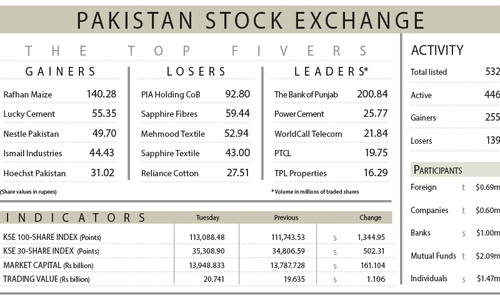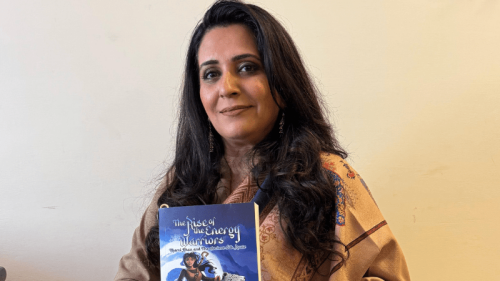BRUSSELS, April 28: The European Commission hiked on Monday its 2008 inflation forecast to 3.2 per cent from 2.6 previously in the face of record oil and food prices but predicted that growth would suffer only slightly.
We are facing a very challenging time regarding inflation, EU Economic and Monetary Affairs Commissioner Joaquin Almunia told reporters in Brussels, describing soaring consumer prices as a “major problem.
Right now, both within the EU, the euro area and in the world, (it is) the poorest and weakest sectors of our societies that are suffering more because of inflation, he said.
Despite the sharp upward revision to inflation, the European Union’s executive arm only trimmed its eurozone growth estimate in its spring Economic Forecast to 1.7 per cent from its last forecast of 1.8 per cent in February.
The commission forecast that the second quarter would prove to be the weakest point of the current slowdown, with quarterly growth of only 0.2 per cent before the economy started picking up again.
While record oil and food prices were taking their toll on growth and inflation, financial market turmoil and a US slump were proving to be worse than previously expected, the commission said.
In the 27-nation European Union, the commission forecast inflation would reach 3.6 per cent this year, instead of the 2.9 per cent previously expected, but stuck to its estimate for 2.0 per cent economic growth.
The commission predicted that consumer price rises would peak in the second quarter and cool down over the remainder of the year and into 2009, bringing inflation in the eurozone down to 2.2 per cent next year.
Driven ever higher by record commodities prices, 12-month eurozone inflation hit 3.6 per cent in March, the highest since the 1999 launch of the shared currency and well above the European Central Bank’s comfort level of just under 2.0 per cent.
Unlike some other major central banks, the Frankfurt-based ECB has so far opted not to cut interest rates in the face of weakening growth, concentrating instead on keeping a lid on inflation.
In Vienna, ECB chief Jean-Claude Trichet described the current economic environment as “very challenging” but voiced confidence the ECB will meet those challenges thanks to its stability-orientated monetary policy strategy.
While oil prices flirt with records close to $120 a barrel, the EU executive said futures contracts suggested food prices would rise 54 per cent in the first half of 2008 before stabilising.
Europe’s biggest economy was forecast to grow 1.8 per cent this year, rather than the 1.6 per cent the commission predicted in February.
Looking ahead to 2009, the commission predicted that economic activity would pick up towards the end of the year to about 2.0 per cent in the eurozone at an annualised rate.
—AFP

















































Dear visitor, the comments section is undergoing an overhaul and will return soon.